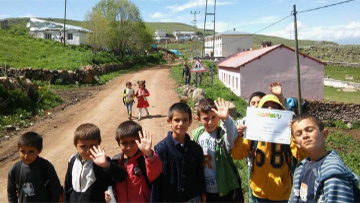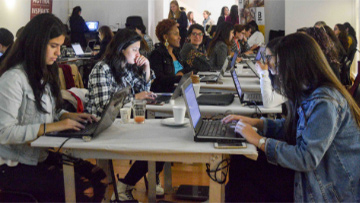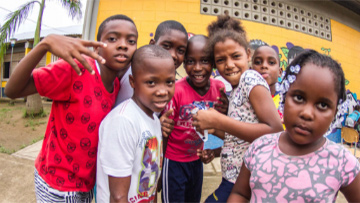Women in the media: Agents of peace in Georgia

Participants receive certificates after completing peace journalism training
To create lasting peace, we need women’s voices.
After decades of conflict in Georgia, tensions reached a peak during the 2008 Russo-Georgian war. More than 10 years later, the tension along the Georgian-South Ossetian de-facto border is still apparent.
Over time, the mental and emotional strain of war and violence has taken a toll on Georgians.
Depression and substance abuse among men has led to higher rates of violence against women. High unemployment rates have left many citizens living below the poverty line. Perpetual fear and anxiety have strained citizens’ mental health.
Bias representations in the media intensify these issues, with many journalists adopting “war journalism”
rather than “peace journalism.”
But there are organizations in Georgia taking action to resolve the conflict and build peace and prosperity. The Embassy of Canada to Türkiye, which is responsible for Canada’s work in Georgia, is proud to support their efforts through its Canada Fund for Local Initiatives.
De-escalating violence through peace journalism
In times of conflict, it’s easy for the media to fuel hate through violence-based language. Peace journalism encourages journalists to consider non-violent responses to conflict through unbiased and accurate reporting.
Alongside the International Network for Civil Development, the Embassy of Canada hosted a three-day training session on peace journalism for 85 women and male journalists and young people interested in peacebuilding.
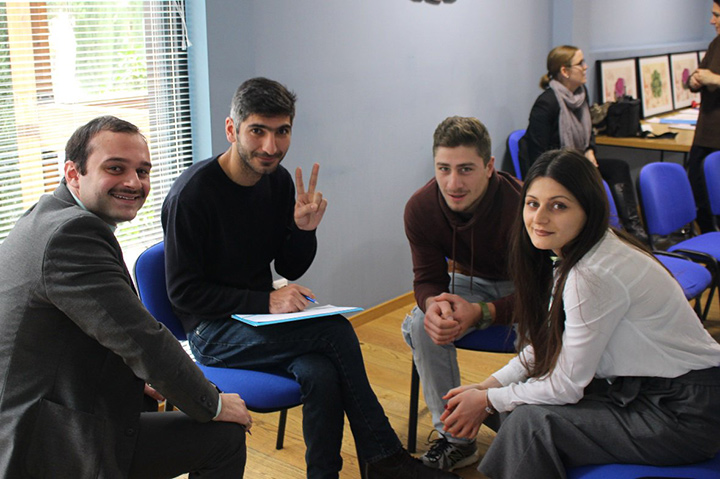
Participants used interactive case studies to better understand the concepts of peace journalism, propaganda and bias. They also discussed the role of journalism in breaking the cycle of violence and how certain types of war journalism can intensify conflicts.
Training sessions emphasized the importance of including female voices in the media. Women’s participation in every aspect of conflict prevention and resolution is crucial to lasting peace, including women in journalism. The sessions encouraged women to use peace journalism as a tool for building reconciliation and confidence on both sides of the South Ossetian border
One woman journalist spoke about her experience covering the 2008 war between Georgia and Russia. During the conflict, a young, wounded Russian soldier was captured on Georgian territory. He was brought to the local hospital, treated with respect and returned to Russia after he recovered. Many years later, she discovered that this soldier was returning the kindness he had received by helping Georgians who accidentally cross the de-facto border into South Ossetia to return home instead of being sent to prison.
The death and violence of the war initially made her furious and want to respond with violence as well, but her first-hand experience of the success of peaceful tactics helped her realize that conflict-based journalism just adds to the hostility.
After this training, participants agreed that they are more inclined to avoid escalating rhetoric and harmful war-mode styles of writing. These training sessions seek to help journalists ease tensions, rather than escalate them in times of conflict, while reinforcing the value of gender equality in media and peacebuilding.
Women are key to peacebuilding along the de-facto South Ossetian border
Women are undoubtedly important allies in the peacebuilding process. Their participation in conflict prevention and resolution is proven to lead to more inclusive, gender equal and peaceful societies; women’s participation in peacebuilding makes a peace agreement 35% more likely to last for at least 15 years, according to UN Women.
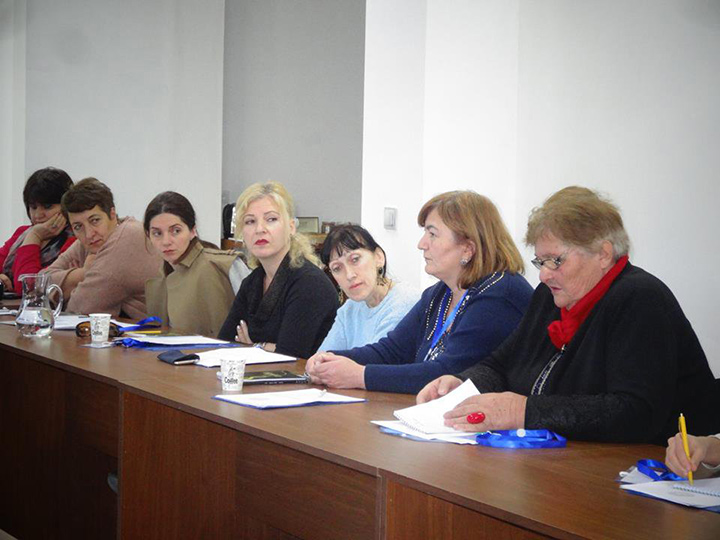
That’s why Canada is proud to support the Union of Wives of Invalids and Lost Warriors (UWILW) project “Together for Peace and Democracy”
through the Canada Fund for Local Initiatives.
UWILW and the Embassy of Canada hosted 19 community meetings across Georgia to promote peacebuilding between residents on either side of South Ossetia’s de-facto border. The sessions focused on the importance of gender equality in conflict resolution
Women from a range of backgrounds and both sides of the disputed border line came together with men in their communities to discuss the principles of peace, tolerance, democracy and human rights. UWILW emphasizes the importance of gender equality in achieving sustainable peace and inclusive democracy.
One woman shared how she refused to abandon her classroom when the war reached her community in South Ossetia. She continued to teach, even when only five families remained in their village. Eventually armed soldiers forced her to leave, but she quickly opened a school out of an abandoned train carriage from her new home in Ergenti. She has now built a school there, which has helped build a sense of trust within the community.
In the meeting, community members reported a greater sense of understanding and empathy for their neighbours across the border line. When communities come together, it is easier to see how much more unites us than separates us. Women play an important role in building those bridges.
A vision for world-wide peace
Efforts to foster peace in Georgia don’t stop there.
In addition to these training sessions and informational meetings, the Embassy of Canada and UWILW are producing two TV programs about how to navigate disagreements in the conflict zone. These joint initiatives culminated in a conference called “People-to-People Democracy.”
During this conference, organizers shared the results of the initiatives as communities work together on the path to peace.
Peacebuilding is an important element of Canada’s vision of a safer, more secure world. As part of the Women, Peace and Security Agenda, Canada recognizes that sustainable peace is only possible when women are fully involved in conflict prevention and resolution. This is at the heart of Canada’s Feminist Foreign Policy.
Canada is proud to partner with local organizations in Georgia to support female journalists and peacebuilders, as they foster more peaceful and safe communities for everyone
Related Links
External links
- Date Modified:
